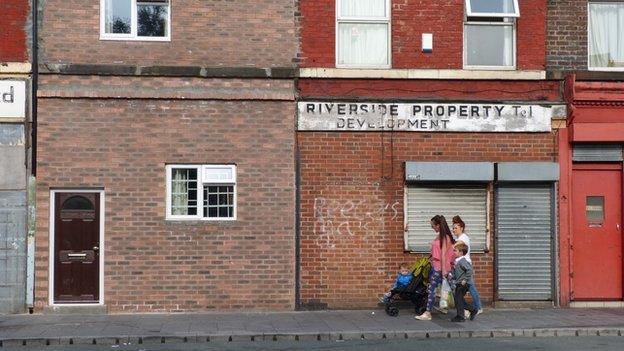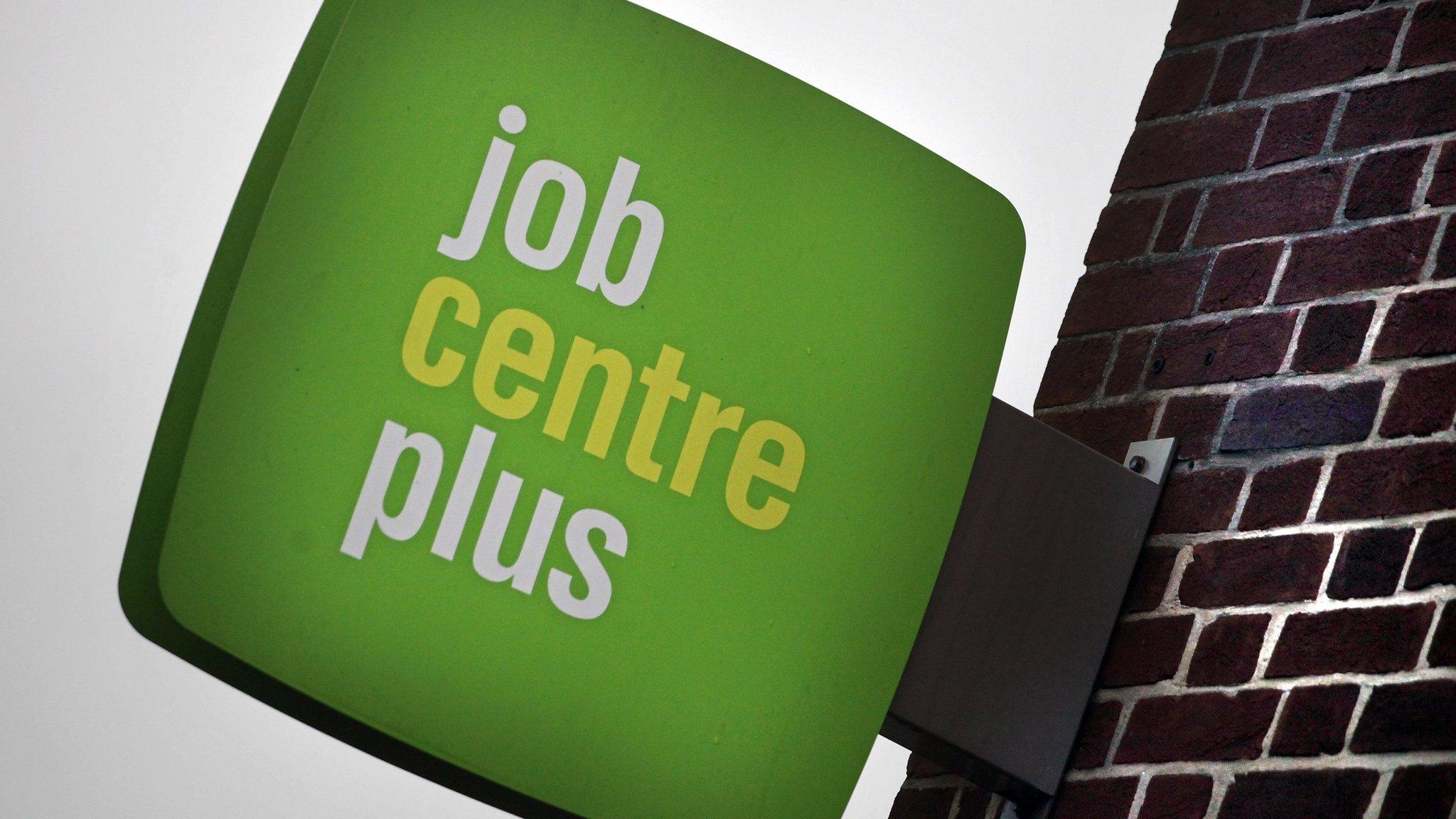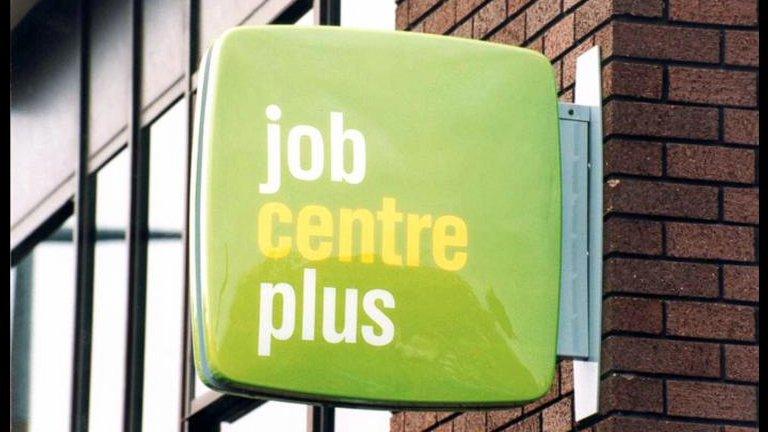Benefit sanctions can cause severe hardship, say MPs
- Published

Benefit claimants can have their payments stopped if they break the rules
A group of MPs has condemned the way some benefit claimants have their payments stopped - known as sanctions.
For the second time in a year, the Work and Pensions Committee has called for an independent enquiry into the way the sanctions are applied.
In some cases the MPs suggested that sanctions were causing food poverty and "severe financial hardship".
Ministers said they would study the report's conclusions before deciding whether an enquiry should go ahead.
The MPs want the enquiry to study whether benefit sanctions are being applied appropriately, fairly and proportionately.
"No claimant should have their benefit payment reduced to zero when they are at risk of severe financial hardship, to the extent of not being able to feed themselves or their families, or pay their rent," said Dame Anne Begg, the chair of the committee.
The MPs were particularly concerned that hardship payments - to alleviate cases of hardship -are often only available after 15 days of sanctions.
"It is not reasonable to expect people to live without any source of income for two weeks," said Dame Anne.
'Postcode lottery'
The MPs have also demanded more information about the number of people who commit suicide after their benefit payments have been stopped.
Since February 2012, the Department for Work and Pensions (DWP) has investigated 49 cases in which claimants committed suicide.
But it is not known in how many cases those claimants had been sanctioned.
The DWP said benefit sanctions were not new, and they were important to encourage people to find work.
"As the report recognises, sanctions are a vital backstop in the welfare system and are only used in a small minority of cases where claimants don't do all they can to look for work," a DWP spokesman said.
"Every day Jobcentre Plus advisers work hard to help people into jobs, and we continue to spend around £94bn a year on working age benefits to provide a safety net that supports millions of people," she said.
More than six million people have had their benefits stopped since April 2000, although the government says the number fell last year.
Those claiming Jobseeker's Allowance (JSA) and Employment Support Allowance (ESA) can have their payments stopped for up to four weeks for a first offence - such as not being available for work.
Earlier this month a report by the homeless charity Crisis found there was a "postcode lottery" in the way that sanctions were applied across the UK.
- Published10 March 2015

- Published1 July 2014

- Published16 April 2014
